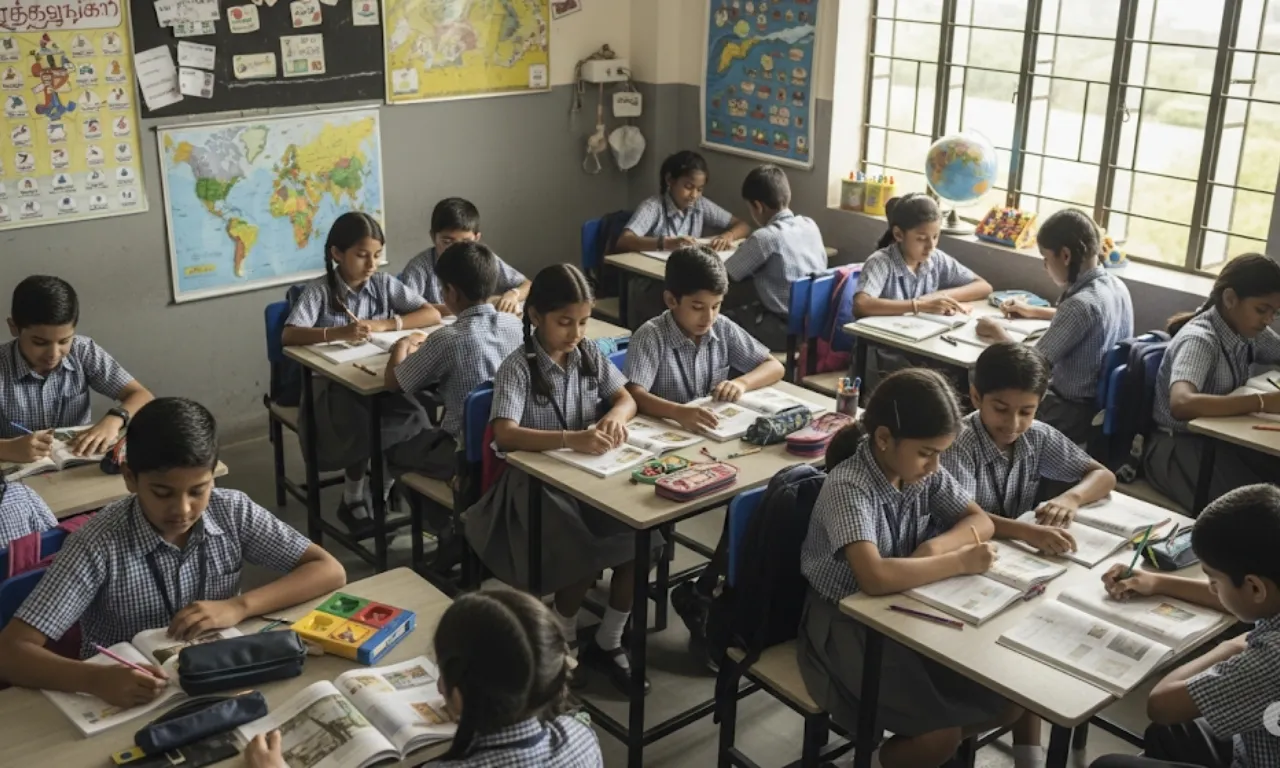- Tamil Nadu CM Stalin asks the central government to quickly release Rs 2,100 crore under the Samagra Shiksha Scheme.
- The state stresses its commitment to the two-language education formula, different from the NEP 2020’s three-language plan.
- Delay in fund release affects educational infrastructure and students’ futures; Tamil Nadu seeks funds without signing PM SHRI agreement.
Samagra Shiksha Scheme continues to be a key part of shaping India’s education system. Recently, Tamil Nadu Chief Minister M K Stalin made an important request to the central government, asking for the release of Rs 2,100 crore to support the state’s educational reforms. This request shows Tamil Nadu’s dedication to its own education policies and the need to support students and teachers well.
Tamil Nadu’s Request for Rs 2,100 Crore under Samagra Shiksha Scheme
Tamil Nadu Chief Minister M K Stalin, through Finance Minister Thangam Thennarasu, sent a memorandum to Prime Minister Narendra Modi asking for the timely release of over Rs 2,100 crore as the central share under the Samagra Shiksha Scheme. The amount covers the financial year 2024-25 and the first installment for 2025-26. This effort aims to keep the educational reforms and programs running smoothly across the state.
Importance of Samagra Shiksha Scheme for Students and Teachers
This scheme is the main part of many education programs, affecting both students and teachers by providing important infrastructure and resources. Funds from the Samagra Shiksha Scheme support Tamil Nadu’s two-language education system, which focuses on Tamil and English. These reforms help keep cultural identity alive while building strong language skills for students, and support teachers by making sure they have access to good materials and training.
Also Read – Tamil Nadu EV Repair Training and Dairy Farm Scheme Benefits Youth and Farmers
Tamil Nadu’s Two-Language Formula Compared to National Education Policy
Tamil Nadu has stayed with a two-language formula, focusing on Tamil and English, which is different from the three-language formula suggested in the National Education Policy (NEP) 2020. The state has clearly expressed its “different views” on the three-language plan and strongly supports its long-standing policy. This choice aims to protect the state’s linguistic heritage and keep education focused.
Effects of Delay in Fund Release on Education
Delays or holding back funds under the Samagra Shiksha Scheme badly affect the state’s ability to improve educational facilities, including classrooms, teaching materials, and other important resources. Most importantly, not releasing funds threatens the future of lakhs of students by limiting their access to good education and resources vital for their studies and growth.
The PM SHRI Agreement and Tamil Nadu’s Stand
The memorandum asks that Tamil Nadu gets the funds without having to sign the PM SHRI (Prime Minister’s Schools for Rising India) agreement. The state wants to keep its educational independence and follow its own policies, while still getting financial support from the central government. This request shows Tamil Nadu’s effort to balance working with the Centre and sticking to its unique education plans.
| Details | Information |
|---|---|
| Scheme Name | Samagra Shiksha Scheme |
| Fund Amount Requested | Rs 2,151.59 crore (2024-25) + first installment for 2025-26 |
| Request Made By | CM M K Stalin (Tamil Nadu) |
| Official Stance | Two-language formula (Tamil & English) |
| Fund Release Condition | Requested without signing PM SHRI agreement |
| Impact Area | Educational infrastructure, student future, teacher training |
| Memorandum Submitted To | Prime Minister Narendra Modi |
| Date | 25 July 2025 |
Knowing the importance of the Samagra Shiksha Scheme fund release for Tamil Nadu helps everyone involved understand the ongoing talks between the state and central government. It will be important for students, teachers, and policy makers to watch how this situation develops to support quality education in India.

